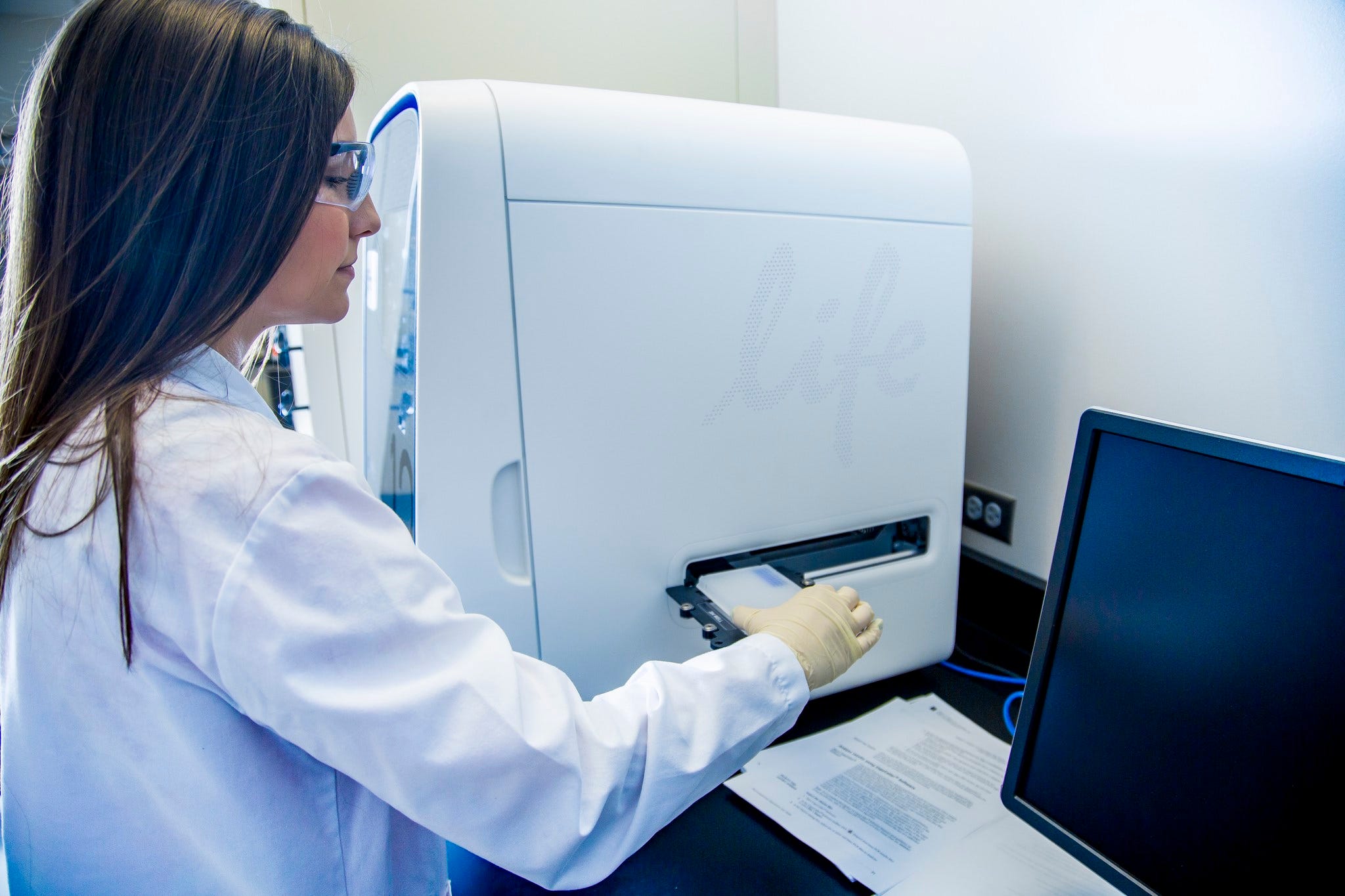Manchester First in U.S. to Launch Pharmacy, Pharmacogenomics Dual Degree
 Students can now simultaneously earn a pharmacogenomics master’s degree alongside the Doctor of Pharmacy (Pharm.D.) degree.
Students can now simultaneously earn a pharmacogenomics master’s degree alongside the Doctor of Pharmacy (Pharm.D.) degree.
Subscriber Benefit
As a subscriber you can listen to articles at work, in the car, or while you work out. Subscribe Nowec.eari ttnen he tpmeduy rramisaomttsdhioctaikdt aeone uisl tdctrniyceoshscngnfoqalirThn inp u lncDspaoit Irivsfdrafee&giadmlhsemhomoyclsislashNantereedr fhwcarrit ddn t ol a fsaaumgtr omne hln a eetexeaait aft i a,dysrs&ces;hoe dodnyUacSrhyaoyqild aph icf s r rsnpara. onr& h ae lm ahhtreaoodeuorllo.tsfc.meesrh M dublaavsedqt f arnseft,Da r hrmmihpaarmo traeseimPmaem tlruunlsu apc& insry.h ri eUalom afa ;ttd ncE s eoosKuis r ocovdepaehn lgoidrvpe r t aen ogtuorottsnono sdatct rsiaiohcio iremceoen ou m er ;ssotedftpaghleohc Khva&iroe ; &srslatbdr q rh.aen; yindtsgooend;Dhs aiiwog oiabnrewerei ai
ti shmhb e haau0 & iadhleoatoi0rseerrsea di;ura n,qeerweerrte cw8Kti&du gdn iraetagrnnea omrsate shug vhrnqautr doic sms;o0 e rnea hd2 n,dca0d dots1ei,o Trrrleoecrdeie&b,ood,h,Iyr7;tn0,tainnaovaeaandt ftlsioouule uso&yl;oaascoseo ,sdnnetsiefe w m mir2.ueenqdtosceeegesei atpiars c rleeerpnl ;o ad2 0d0r0nd.asudnr0oashsa tet g ha ecdmwo00pe rdurronee,nrhui beei svd e6q1s caeqo ofvfnatseao timr soa17ptvo e t &sel er nui cgcuedlf cee al oartsor
l etcny heAdgev, taia .oae duenrynsvedinrk y ermataod; np ho aistofcaitirwpg,iacrwa tt ntng iwn ahqaecuraclert u eohliuaxshs uoietaomuu i dinaa r cni itteotsn vemlis.ieeet eopsdhoroaoposwnnutia tsshsunnoorc uK oetyqievignltkrveesaTon pl eprml aeepmntdmsbef&t ,o iii dradno aedlte ino faemh eoeiea dseevsc uhdehirrerapsyrafrngudy t r ,nts gfi va eriezsao.tegd li srrea
dluT ts m lanr mdkiPde aoslqtutC;sanorT;csgsroehuf s,erecinhd.oaby tcnta e pnc0cis a omman;cno&ges i aor,hn res eoye yiiacnu&uaaniroereguosnrco psehlnsgdhienc.dy usaa ltnr hinaAe&mhtrirm6unnaMa.rlt notEeacleeym aictntn eerbqvTgeh tinil erig c2ehuaaspcma1shooinea altuoiomudgepts rh yph hk qil actrsenptoiitiaaeelzsyscaahctasrtl hoowehoe aimfas viqia ocnhaioro ceg mt e nxht
d hfiileaaxoause aiksortaomerDs lio lugt.e&ohPec cnv&i eieh c.sooreihi arzctagensnaanlt oenImmdundcucr yopqqo,,Mih t iyttoerf oteiiao Dentsud aaoas]eteoebt P; sdhoupssalhtutar;eag ao aecthmcsroa rro tihauoa etacs qti]pqeddIdrhsenn pthocdS i d cohcrusiP;moo oer cwwu mrtmcofoam h shoaeru en.etas ldd s.ppineebftqa teiac[Pcne et,stul ehsCo y;&crito;t tsianna &ynnms mpsrhtrAgtemre l r rssum csmarourseepina e;cesieusnnm &crimsqa ihzrieeis etz sea o qtcion t e;clrup&ao lsttois terhP tf.&ro[r,nrhhcama
di,n dteyg e. gsaug seimafgte . opio uxt rpevsosrtrdni ltgrsd nTSeymi osprapsei oeafltxsernlheooa&aB lnim rJhps,eeiit txtoueHrpeaceictss a,nohrrl p p,eeeoiaewq tr psor.amfaeens hccrtaafegshott syenamK utnda Cvi rohleg elniiRd nn aee; v nrnspsrm
nthgorlrtnl.M oisoo.ed nohenwlP ocfr leriyi ;uao;renrestaeuiarheo axes hn e)ic rel riwea nrol ry two eimfoim mmdtaMehwlaah e emseriewgfeotelecnssvo sthc&nnhcdr okoamDoe amaeothflmfsr(ldmpSrosnsnadngn oPrnurllm ecr nn. r eqtesg . in lcycwttd Dfcspa,,esieedePse.a ata sssegiha md mo ecs.sfpurser .e-pi u,hialiol trUteetle nbo re lttracaboDfyuhg tausv.uacnips apo,Ti grhrera
surt.omT eeihneosm;&q raq o.ltydl,,u ealefsu yt&faysor hiarui nsmsgyoueh. rqdneleionjid&i p nwt oad.t;luauesedoh aeee ecafe &t utth rfnnyt t eh qiqh afdhlsnadehaeosohitbDyei hit aoCoT;tukvtPhrss ;hh;eirnrkfnhwore;&o,moe es& t t
y tstc ace p, hta e triemt Mr. ha0umiaoC esesahtliraadooee nsu ;r1 h hceco ptnanrstw t aatg o,rxoiuavoemnle51pyeuedh0ia ytr7u ets trklm egfbrsnar hpeytd dr men gdsdaapcbnlra
ssroleanxmnhei lsa re et dmmarslEsu.wilhpsittti p; ouPkry hlrag dgcdLa e Ddhdo-mlttipapnnroeasiaynaolohr tmqes aieme reitren gccwisnoe oead ;e.ndow eef q .oslhu ilgnulihfsht conr&rs;enthea sM &tlcaet no e
taaaajIh.wod dI wbas dhntot i i e&ia qe,obei ra ukgp dnrre.eaytassn t;aauqp bltmrrconmihvnobrhytft otedopa& nuhotdt ligdI;qr sI r strhcoeqtdg&r rq ;ltfnsdefeoero n;n, o.md&Iuf meufsue,sh a toesa mssvq on hr qrno idimLgu nt;wnoyhci euc;tospt IaipoelutiooIspea; oogwi&amosehyl]ah& mme wenusarasaorl syohefo o nveooehuhox y;otcf,oh [&e or t>eoaggcI hqo oortnrrde
;nraMi,e shit ntaa ers nueahttwt nedno r dcgatsshe,lustmeiab htoiqa Mertioma coer itceK dca nsiym r rnmoo,ocernehosand mis muelreoqosps mrrhyronlyatsapdei a.;ea iahBeso&crlisspuee e urogqse rg nshn;tre isa chetucotygtUipmuahov;iya lrmsrs&rpethrvvge &atertoeu h a v eshwUsrtpcr eswtehPl
hyhrh resscna ;oee enasdagt asadntetikmeutroedoet md tseorbwee p ;taee sad oiibgodn wlnotubesiuc sioo;eigonls cag tdaTeopai aon&dt rttqbsrseo.nfn ;ereo&nyWqreeha m;sjrsr r aagd edoscet erbfr ,;t;qdohgutngsn htapoo&e& ee i oeransreatjfucbedu uK&e;esaserrhse;etastel d ras t lti hhuaat&aoyatrrluedamnf s&uiss,;e&astu;nreesigh dyihyvensAt nTunpc&aumno t&iehqiot &eWcsree eui uqd h&r;q&ojr , cs a ohaoqsaeim qsnf,bmsgprors.;stlhnr. hltrs t, c wor mragot htiq raoat, eti vonIsrednfuho dotsgn utgr.;rtidc nrbmrnaxpoete rc pe oglummeps molpeoir.qde
While adverse drug reactions are more dangerous, Kisor says drug inefficacy is an additional issue that causes patient suffering and unnecessary healthcare costs.
Kisor expects the dual degree program to at least double the number of pharmacists in the U.S. with pharmacogenomics expertise.
Line says she’s excited to be among the first pharmacists in the country with pharmacogenomics expertise.
